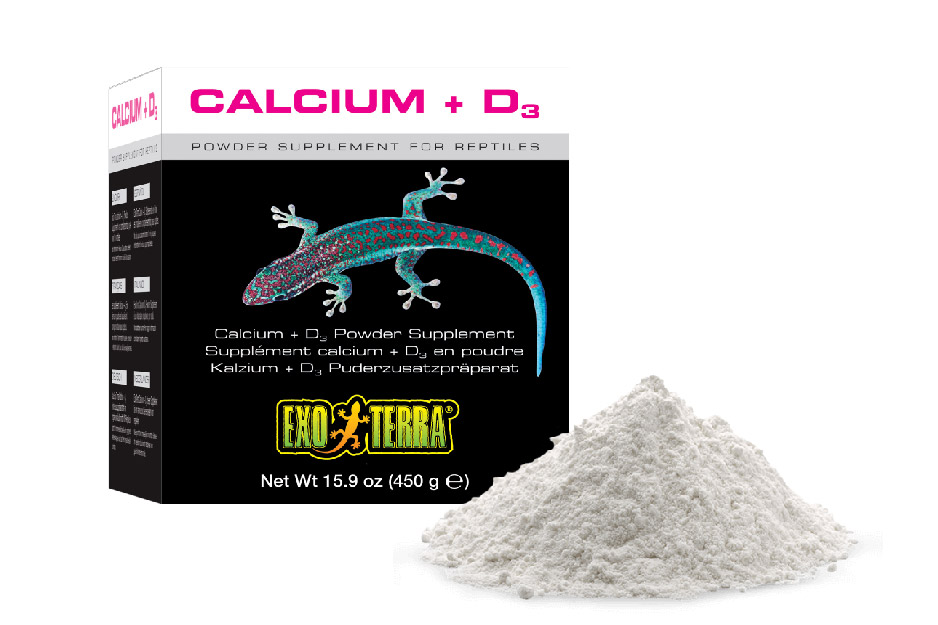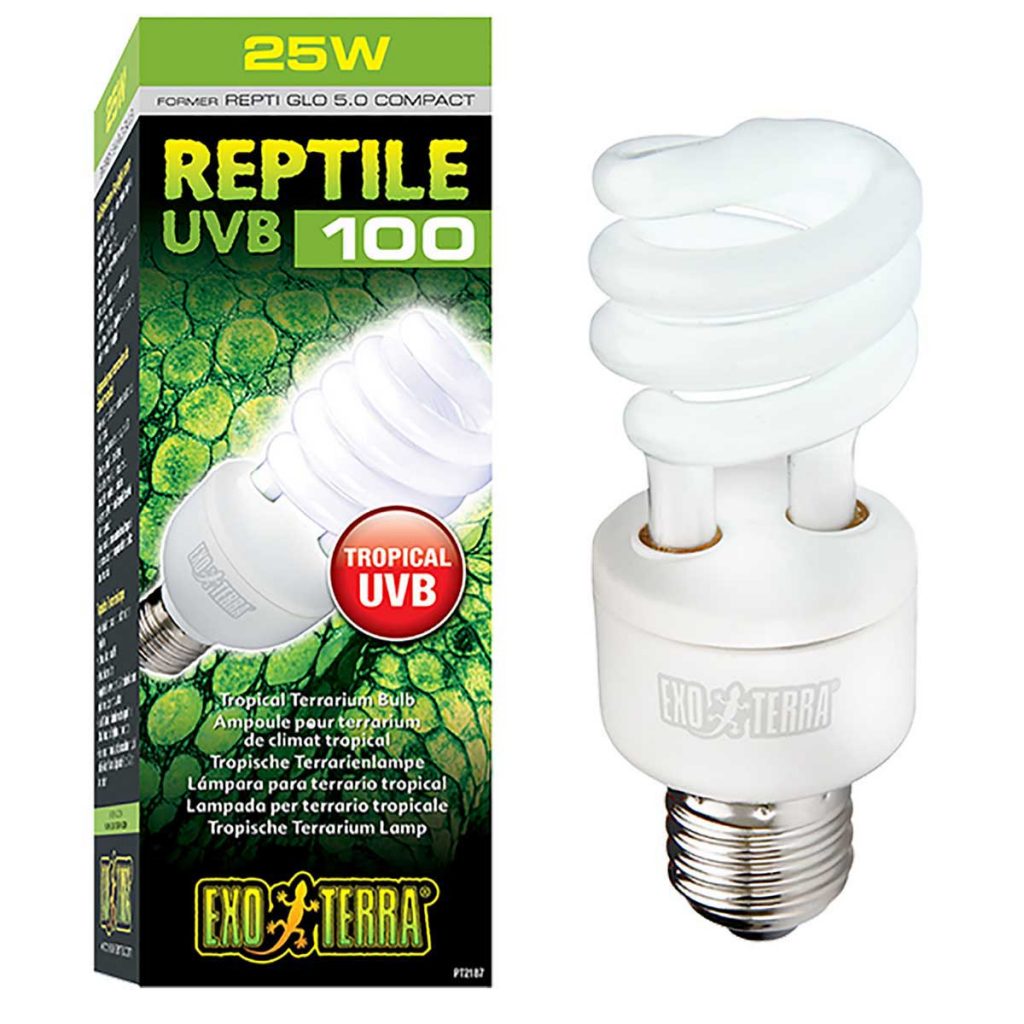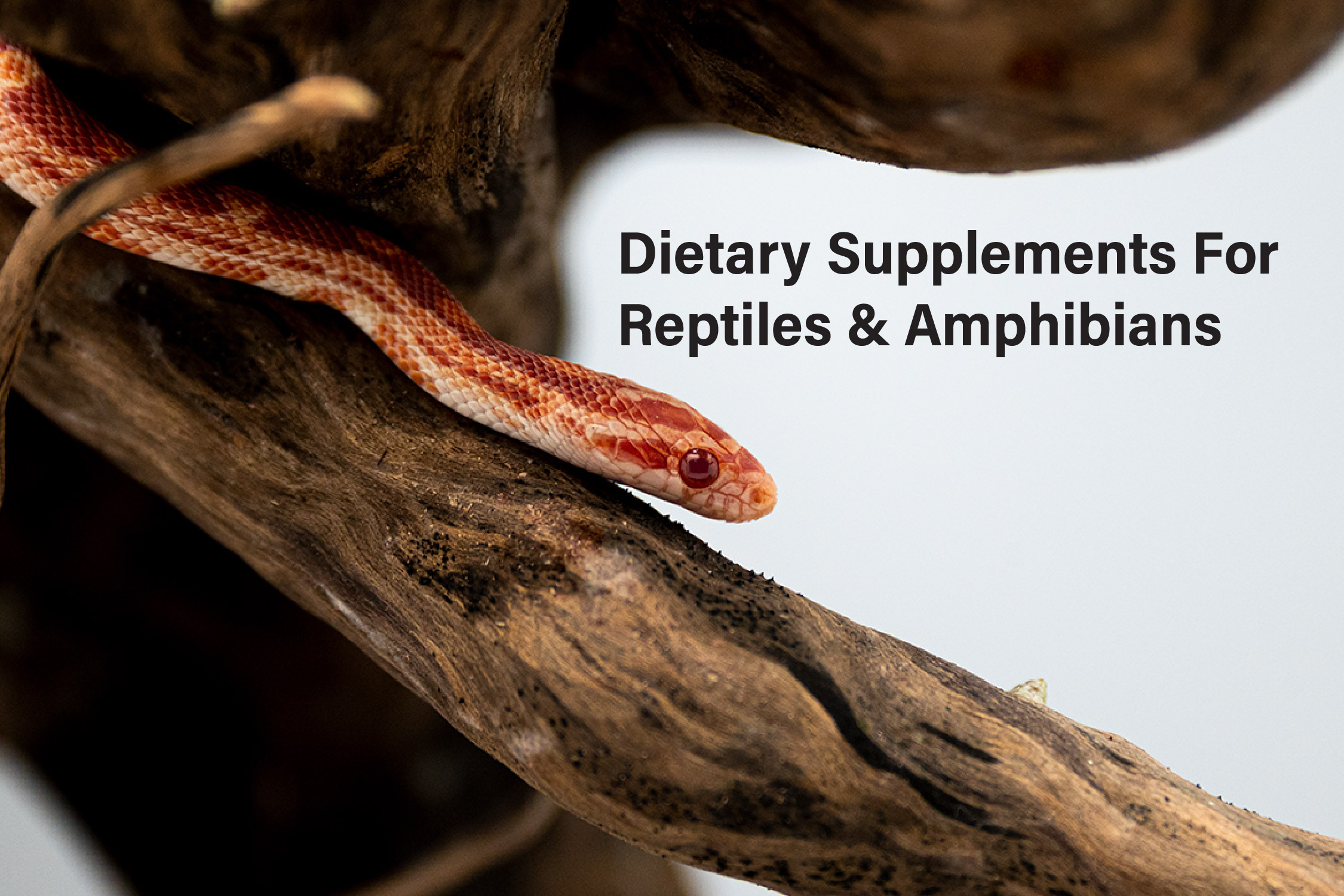Meeting the nutritional needs of captive reptiles and amphibians can often be a challenge for many pet owners, both new and old in the ‘herp hobby’. This is because, in the wild, these animals are accustomed to a varied diet—having access to dozens of fruits, vegetables, and live prey, which all provide them with necessary nutrients. But in captivity, keepers find it hard to offer such a wide selection of nutritious food. So, supplements can be given to balancing out your pet’s diet where necessary.
There are three types of supplements (listed below) on the market associated with the most common deficiencies observed in captive herps. This is due to the fact that commonly available insects and fresh produce may not fulfil the daily nutritional requirements that are easily met in natural ‘wild’ diets. Additionally, lack of natural sunlight and insufficient UVB light in captivity will result in insufficient vitamin D3 synthesis, a process that is crucial to calcium absorption in pet herps.
- Multivitamins
- Calcium
- Vitamin D3
*These supplements typically come in powder or liquid form and can be easily found at your local pet stores. Vitamin D3 is usually included inside other supplements and is not a stand-alone supplement.
Does My Pet Need These Supplements?

Calcium and Vitamin D3 supplement commonly available in many pet stores.
Supplements are formulated to fill the nutritional gaps in the diets of captive animals and in some cases, are crucial to their health. So the simple and short answer is yes, captive herps do need supplements for the best health.
When deciding on which type of supplement to give your pet, you should take into account the species of your reptile or amphibian, their living conditions, the food they are exposed to, and their health condition.
Understanding The Benefits Of Supplementations
Offering your pets supplements will certainly prevent health issues and possibly lead to a longer lifespan. Nutritional deficiencies in animals—as with humans—should not be taken lightly as they can have detrimental effects in the long run.
Metabolic Bone Disease (MBD) is one of the most common medical conditions observed by herp veterinarians. This condition mainly arises from inadequate levels of calcium (improper ratio of dietary 2 calcium: 1 phosphorus) or inefficient absorption of calcium due to low levels of vitamin D3 (inadequate exposure to UVB rays). When your pet suffers from MBD, its body begins to utilize calcium from the bones, leading to deformities and ‘soft’ bones that are easily fractured.

UVB lightbulbs are specially made to emit substantially more UV rays for reptiles compared to normal lightbulbs.
Herps are able to get all the UVB they need in the wild from the sun. When kept in captivity indoors, however, it is a different story. If you provide them with high quality, specialized UVB bulbs and expose them to natural sunlight on occasion, your herp’s D3 levels should be kept at an optimum level, allowing them to efficiently absorb calcium from their diet without needing the help of D3 supplements.
Adding D3 supplements will also benefit species that do not necessarily require UVB lighting in their vivarium for survival (such as nocturnal herps like Pacman frogs). This is because these animals still require adequate amounts of vitamin D3 to properly absorb calcium in their food, which they are able to synthesize in their skin as they still get some exposure to the sun in the wild. But do note that for pets that are exposed continuously to unfiltered sunlight, vitamin D3 supplements should be avoided as they can lead to overdose.
Most store-bought herp foods like crickets and mealworms tend to comprise more phosphorus—another necessary mineral—than calcium. But too much phosphorus can interfere with calcium absorption; so, maintaining proper calcium to phosphorus (2:1) ratio in the diet is crucial. This can be achieved through calcium supplements.
Nutritional imbalance is a very common issue with herps, though it can be avoided or fixed by administering multivitamin supplements as a safeguard against dietary deficiencies.
How Much Should I Feed And How Often?
Depending on the form of the supplement, you can either dust or pour the recommended dosage (read product label) over your pet’s food. As for how often to feed supplements, you will have to consider many factors such as the species of your pet, their vivarium set up, whether they are growing juveniles or gravid females, what nutrients does the supplement consist of, and the nutritional value of your pet’s diet before supplementation.
All this may sound complicated and intimidating at first. But with adequate research on your pet’s species profile and with the help of a trusted veterinarian (who specializes in herpetology) or a pet care consultant, you should be able to get an idea of how to start supplementing your pet’s diet!
Overall Balance Is Key To Herp Care
In conclusion, it is a good call to introduce supplements to your pet reptile or amphibian’s diet to support their overall health. With a combination of adequate UVB exposure, a proper temperature gradient, and as varied a diet as possible, your ectothermic pet will develop stronger immunity and improved bodily functions.
It is a herp keeper’s responsibility to create a balanced diet that equates to what captive herps are naturally accustomed to in the wild. Though this can be challenging, we cannot ignore its importance. So, start thinking about adding supplements to your pet herp’s diet now, to fill in those nutritional gaps!

